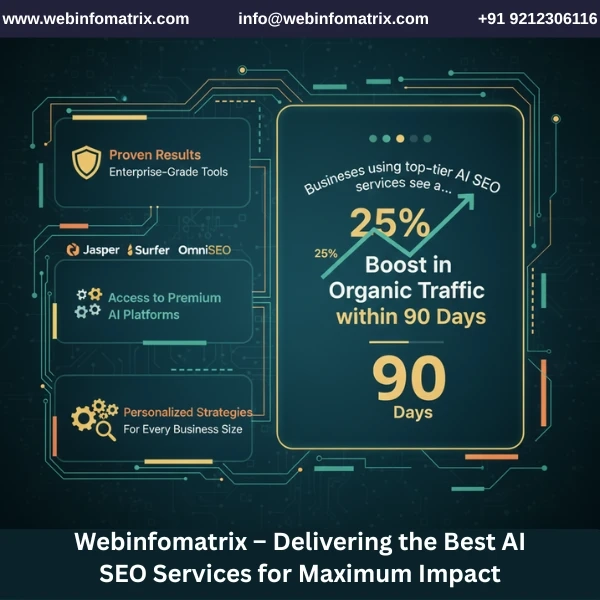In today’s rapidly evolving digital landscape, businesses are continually seeking innovative ways to stay ahead in search engine rankings. Traditional SEO methods, while essential, are becoming increasingly labor-intensive and time-consuming. Manual keyword research, competitor analysis, content audits, and performance tracking require significant resources—something that small teams or emerging businesses may struggle to manage. The rise of artificial intelligence has dramatically shifted this paradigm. AI-powered SEO optimization tools have become indispensable for marketers, providing precision, efficiency, and predictive capabilities that were previously unattainable.
The future of ranking is no longer purely about volume of content or backlinks—it’s about smart, data-driven strategies. AI SEO solutions allow businesses to analyze large datasets in real time, uncover actionable insights, and optimize their digital presence with unparalleled speed. These tools not only help identify the best-performing keywords but also assess user behavior, content relevance, and competitor performance. By integrating AI into SEO workflows, businesses can develop campaigns that are both agile and effective, ensuring higher visibility and measurable results.
For digital marketing agencies and in-house teams alike, AI SEO tools are no longer optional—they are essential. The ability to automate repetitive tasks, monitor performance, and adapt to algorithm changes in real time means businesses can maintain a competitive edge while maximizing ROI. AI-powered platforms also empower marketers to focus on creativity and strategy rather than tedious analytics, providing more value to clients and stakeholders.
This article explores how AI SEO optimization tools are shaping the future of ranking. We will discuss the role of SEO AI agents, the structure of AI-driven SEO campaigns, best practices for sustainable growth, and actionable insights for improving keyword targeting. By understanding and adopting these tools, businesses can stay ahead in the digital race and ensure that their SEO strategies are future-proof, scalable, and highly effective.
Enhance Decision-Making with an SEO AI Agent
An SEO AI agent serves as a virtual SEO strategist, continuously analyzing data to optimize website performance and campaign efficiency. Unlike traditional methods, which rely heavily on manual audits and guesswork, AI agents automate keyword research, content evaluation, and competitor analysis.
For businesses aiming to improve keyword targeting, an SEO AI agent provides predictive insights and actionable recommendations. It can identify high-value opportunities, forecast trends, and adapt strategies dynamically based on search engine algorithm changes. The result is faster, more precise optimization that drives measurable improvements in search visibility and ROI.
Streamline Workflow with AI SEO Optimization Tools
AI SEO tools offer businesses an unprecedented level of automation and intelligence. Free and premium AI SEO optimization tools enable marketers to conduct keyword analysis, monitor rankings, audit site performance, and optimize content efficiently.
These tools reduce the need for manual intervention, allowing teams to focus on strategic initiatives such as content creation and campaign planning. By integrating AI tools into everyday workflows, businesses can achieve higher accuracy in keyword targeting, improve search rankings, and maximize overall SEO effectiveness. Over time, these tools become a cornerstone of a business’s digital marketing strategy, enabling sustainable growth and measurable results.
Launch a Data-Driven AI SEO Campaign
A well-structured AI SEO campaign leverages AI insights to enhance every aspect of SEO strategy. From keyword selection to content optimization and performance monitoring, AI-driven campaigns provide precision and agility that manual approaches cannot match.
By continuously analyzing user behavior, search trends, and competitor activities, AI SEO campaigns allow marketers to refine strategies in real time. This adaptability ensures that campaigns remain effective, driving more qualified traffic, higher engagement, and improved conversion rates. The predictive capabilities of AI also allow businesses to anticipate changes in search engine algorithms and adjust strategies proactively, maintaining a competitive advantage.
Implement AI SEO Best Practices for Sustainable Success
Adopting AI SEO best practices ensures that businesses fully leverage AI capabilities while maintaining high-quality optimization standards. Best practices include monitoring keyword performance, updating content based on AI insights, optimizing page speed, ensuring mobile responsiveness, and building authoritative backlinks.
By following these practices, businesses can improve their keyword targeting, enhance SEO effectiveness, and achieve long-term results. AI SEO best practices also provide a roadmap for scaling campaigns, maintaining consistency, and adapting to algorithmic changes, which is essential for future-proofing digital marketing efforts.
FAQs
1. What is an SEO AI agent, and how does it benefit businesses?
An SEO AI agent is a software solution that automates keyword research, content evaluation, and competitor analysis. Businesses benefit from faster decision-making, predictive insights, and improved keyword targeting, which leads to higher search engine rankings and increased ROI.
2. How do AI SEO optimization tools save time?
AI SEO optimization tools automate repetitive tasks such as site audits, keyword tracking, and backlink monitoring. By reducing manual work, marketers can focus on strategy and content creation, improving campaign efficiency and overall SEO effectiveness.
3. Can AI SEO campaigns increase organic traffic?
Yes, AI SEO campaigns leverage predictive analytics to optimize keywords, content, and technical SEO elements. By continuously refining strategies based on AI insights, businesses can attract more qualified traffic, increase engagement, and achieve better conversion rates.
4. What are the best AI SEO best practices?
AI SEO best practices include continuous keyword monitoring, optimizing content for user intent, improving page speed, ensuring mobile-friendly design, and building quality backlinks. Following these practices ensures sustainable growth and improved search engine rankings.
5. Are AI SEO tools suitable for small businesses?
Absolutely. AI SEO optimization tools scale for businesses of all sizes, providing automation and insights that improve keyword targeting and SEO effectiveness without requiring large teams or budgets.
6. How do AI SEO tools improve keyword targeting?
AI tools analyze search trends, competitor strategies, and user behavior to refine keyword targeting. They suggest high-value and long-tail keywords, prioritize optimization efforts, and enhance overall campaign performance.
7. Do AI SEO agents require technical expertise?
Most SEO AI agents are designed to be user-friendly. Small businesses and agencies can implement them without deep technical knowledge while advanced users can leverage analytics for in-depth optimization.
8. How is AI SEO effectiveness measured?
AI SEO effectiveness is measured using metrics like keyword rankings, organic traffic, engagement, and conversion rates. AI tools provide comprehensive reporting to track performance and refine campaigns for maximum impact.
9. Can AI SEO tools integrate with marketing automation?
Yes, many AI tools integrate with AI marketing automation platforms, enabling seamless coordination between SEO and broader marketing efforts, enhancing efficiency, and improving lead generation.
10. Are AI SEO best practices future-proof?
Yes, AI SEO best practices adapt to algorithm changes and evolving search trends. Combining AI insights with consistent optimization ensures long-term visibility, improved keyword targeting, and sustainable



